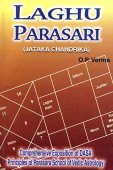Vishta, Viṣṭā: 10 definitions
Introduction:
Vishta means something in Buddhism, Pali, Jainism, Prakrit, Hinduism, Sanskrit. If you want to know the exact meaning, history, etymology or English translation of this term then check out the descriptions on this page. Add your comment or reference to a book if you want to contribute to this summary article.
The Sanskrit term Viṣṭā can be transliterated into English as Vista or Vishta, using the IAST transliteration scheme (?).
In Buddhism
Tibetan Buddhism (Vajrayana or tantric Buddhism)
Source: 84000: Sampuṭodbhava Tantra (Emergence from Sampuṭa)Viṣṭā (विष्टा) refers to one of the primary thirty-two energy-channels in the body, according to the Sampuṭodbhavatantra chapter 1.—Accordingly, “[Vajragarbha asked, ‘What subtle energy channels are in the body?’]—The Blessed One said, ‘There are one hundred and twenty of them, corresponding to the divisions within the four cakras. The chief ones, those with bodhicitta as their innate nature, are thirty-two in number. They are: [i.e., Viṣṭā] [...]’.”.

Tibetan Buddhism includes schools such as Nyingma, Kadampa, Kagyu and Gelug. Their primary canon of literature is divided in two broad categories: The Kangyur, which consists of Buddha’s words, and the Tengyur, which includes commentaries from various sources. Esotericism and tantra techniques (vajrayāna) are collected indepently.
In Jainism
General definition (in Jainism)
Source: archive.org: TrisastisalakapurusacaritraViṣṭā (विष्टा) refers to “excrement” and represents one of the seven magic powers, according to chapter 4.7 [sanatkumāra-cakrin-caritra] of Hemacandra’s 11th century Triṣaṣṭiśalākāpuruṣacaritra: an ancient Sanskrit epic poem narrating the history and legends of sixty-three illustrious persons in Jainism.
Accordingly:—“[...] Magic powers were acquired by him enduring all the trials hard to endure, indifferent to any expedient for relief. The seven magic powers, namely: phlegm, vipruṣ, dried perspiration, impurity, excrement (viṣṭā), touch, and also ‘everything’, are called remedies”.

Jainism is an Indian religion of Dharma whose doctrine revolves around harmlessness (ahimsa) towards every living being. The two major branches (Digambara and Svetambara) of Jainism stimulate self-control (or, shramana, ‘self-reliance’) and spiritual development through a path of peace for the soul to progess to the ultimate goal.
Languages of India and abroad
Sanskrit dictionary
Source: DDSA: The practical Sanskrit-English dictionaryViṣṭā (विष्टा).—Excrement, feces, ordure.
--- OR ---
Vista (विस्त).—A particular weight of gold (= 8 raktikās).
Derivable forms: vistaḥ (विस्तः).
Source: Cologne Digital Sanskrit Dictionaries: Shabda-Sagara Sanskrit-English DictionaryViṣṭa (विष्ट).—mfn.
(-ṣṭaḥ-ṣṭā-ṣṭaṃ) Entered, penetrated, pervaded. f.
(-ṣṭā) Fæces. E. viṣ to pervade, aff. kta .
--- OR ---
Vista (विस्त).—mn.
(-staḥ-staṃ) A weight of gold, a Karsha of sixteen Mashas, about half an ounce troy. E. vis to convey, aff. kta .
Source: Cologne Digital Sanskrit Dictionaries: Benfey Sanskrit-English DictionaryViṣṭā (विष्टा).—([Pañcatantra] 192, 16), and viṣṭhā viṣṭhā ([Mānavadharmaśāstra] 3, 180; 4, 220; 10, 91), f. Fæces, ordure (cf. 4. viṣ).
--- OR ---
Vista (विस्त).—m. A weight of gold, about half an ounce Troy.
Source: Cologne Digital Sanskrit Dictionaries: Cappeller Sanskrit-English DictionaryViṣṭa (विष्ट).—[adjective] entered etc., contained in ([accusative] or [locative]); filled or joined with ([instrumental]).
--- OR ---
Vista (विस्त).—[masculine] a cert. weight.
Source: Cologne Digital Sanskrit Dictionaries: Monier-Williams Sanskrit-English Dictionary1) Viṣṭa (विष्ट):—[from viś] 1. viṣṭa mfn. (for 2. See under √viṣ) entered into, contained in ([accusative] or [locative case]), [Śatapatha-brāhmaṇa; Bhāgavata-purāṇa]
2) [v.s. ...] filled or accompanied with ([instrumental case]), [Taittirīya-saṃhitā]
3) [from viṣ] 2. viṣṭa mfn. (for 1. See p. 989, col. 2) only in pariand saṃ-v q.v.
4) Viṣṭā (विष्टा):—[from viṣṭa > viṣ] f. the feces, excrement ([wrong reading] for viṣṭhā).
5) Viṣṭa (विष्ट):—a 1. 2. viṣṭa. See under √viś and √1. viṣ.
6) Vista (विस्त):—m. (ifc. f(ā). ) a [particular] weight of gold (= 80 Raktikās or a Karṣa of 16 Māṣas, about half an ounce troy), [Prāyaścitta-tattva]
Source: Cologne Digital Sanskrit Dictionaries: Yates Sanskrit-English Dictionary1) Viṣṭa (विष्ट):—[(ṣṭaḥ-ṣṭā-ṣṭaṃ) a.] Entered. f. Fæces.
2) Vista (विस्त):—[(staḥ-staṃ)] 1. m. n. A weight of gold, (1/2) an ounce troy.
Source: DDSA: Paia-sadda-mahannavo; a comprehensive Prakrit Hindi dictionary (S)Viṣṭa (विष्ट) in the Sanskrit language is related to the Prakrit words: Biṭṭha, Viṭṭha, Vittha.
[Sanskrit to German]
Sanskrit, also spelled संस्कृतम् (saṃskṛtam), is an ancient language of India commonly seen as the grandmother of the Indo-European language family (even English!). Closely allied with Prakrit and Pali, Sanskrit is more exhaustive in both grammar and terms and has the most extensive collection of literature in the world, greatly surpassing its sister-languages Greek and Latin.
See also (Relevant definitions)
Starts with (+28): Vishtabdha, Vishtabdhacarana, Vishtabdhagatra, Vishtabdhajirna, Vishtabdhaksha, Vishtabdhata, Vishtabdhi, Vishtabha, Vishtabhita, Vishtabhu, Vishtahari, Vishtai, Vishtakamda, Vishtakarna, Vishtakirna, Vishtambh, Vishtambha, Vishtambhadhovayu, Vishtambhajit, Vishtambhakara.
Ends with (+90): Abhinirvishta, Abhinivishta, Abhipravishta, Abhisamnivishta, Abhivishta, Amtarnivishta, Anahutopavishta, Angapravishta, Anivishta, Antarnivishta, Anupravishta, Anvavishta, Anvishta, Aparivishta, Apratidvishta, Ardhavishta, Asukhavishta, Atamaavishta, Atamavishta, Avishta.
Full-text (+54): Dvivista, Trivishta, Kuruvista, Bahuvista, Shipivishta, Vittha, Upavishta, Avishta, Pravishta, Vishtha, Parivishta, Samavishta, Nivishta, Nirvishta, Pratinivishtamurkha, Buena vista, Vishtatva, Trivaistika, Upalagna, Vishtapura.
Relevant text
Search found 36 books and stories containing Vishta, Viṣṭā, Vista, Viṣṭa; (plurals include: Vishtas, Viṣṭās, Vistas, Viṣṭas). You can also click to the full overview containing English textual excerpts. Below are direct links for the most relevant articles:
Rig Veda (translation and commentary) (by H. H. Wilson)
Trishashti Shalaka Purusha Caritra (by Helen M. Johnson)
Part 20: Sanatkumāra’s installation as Cakravartin < [Chapter VII - Sanatkumāracakricaritra]
Pilgrim < [January – March, 2001]
Adieu < [January – March, 2000]
Realising the Language of Darkness < [July – September, 2001]
Satapatha-brahmana (by Julius Eggeling)
Kāṇḍa VIII, adhyāya 7, brāhmaṇa 3 < [Eight Kāṇḍa]
Jainism in Odisha (Orissa) (by Ashis Ranjan Sahoo)
Brihad Bhagavatamrita (commentary) (by Śrī Śrīmad Bhaktivedānta Nārāyana Gosvāmī Mahārāja)
Verse 1.2.33-34 < [Chapter 2 - Divya (the celestial plane)]
Related products
